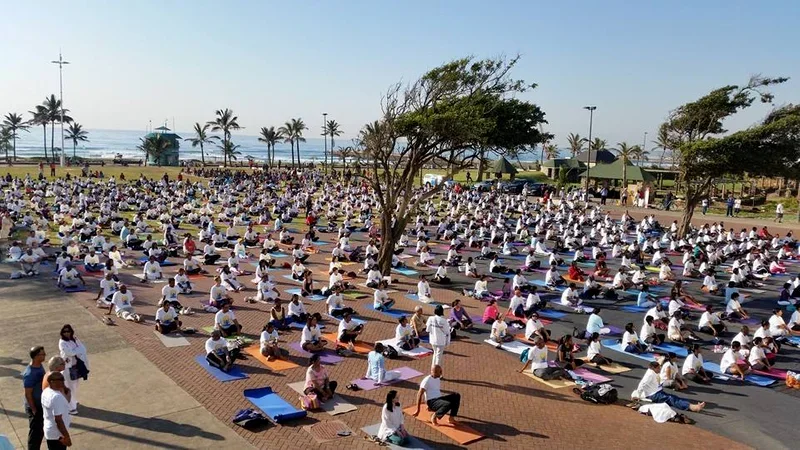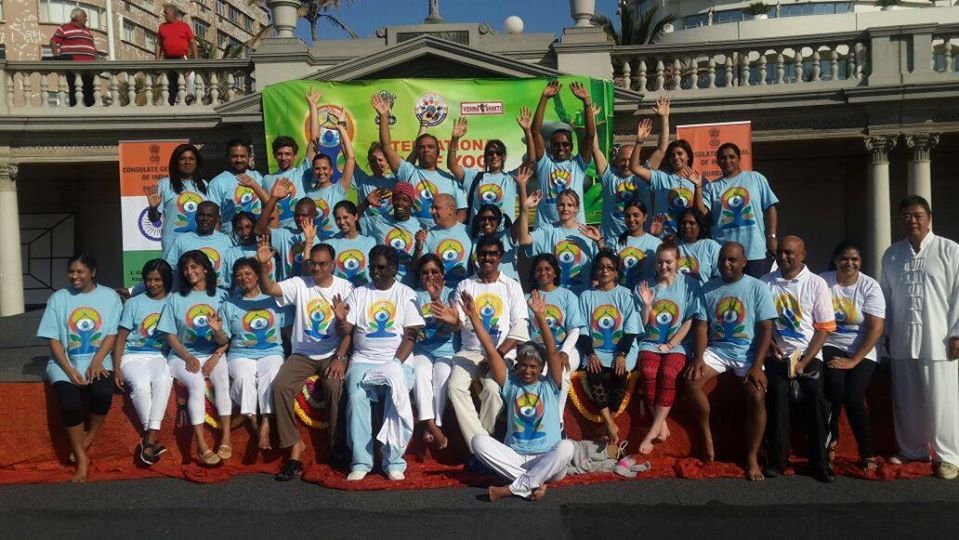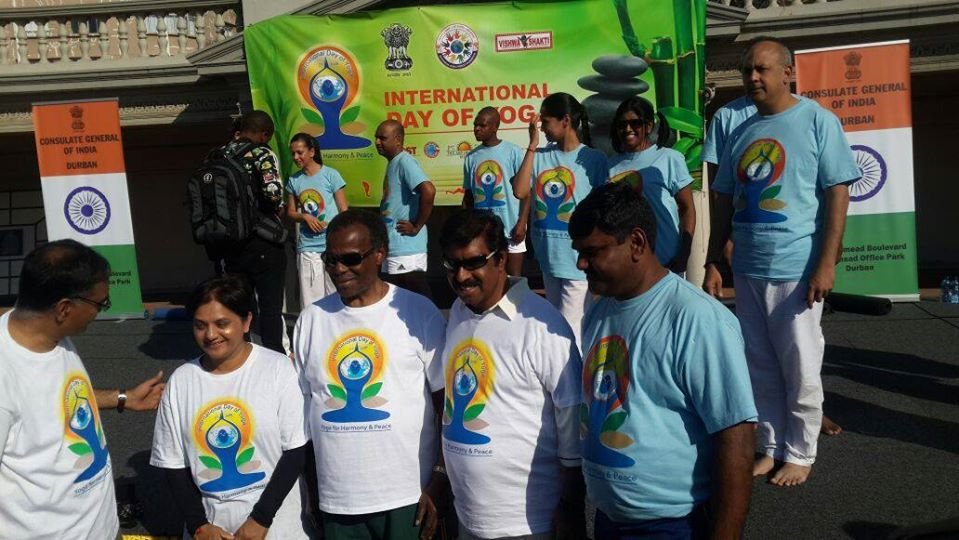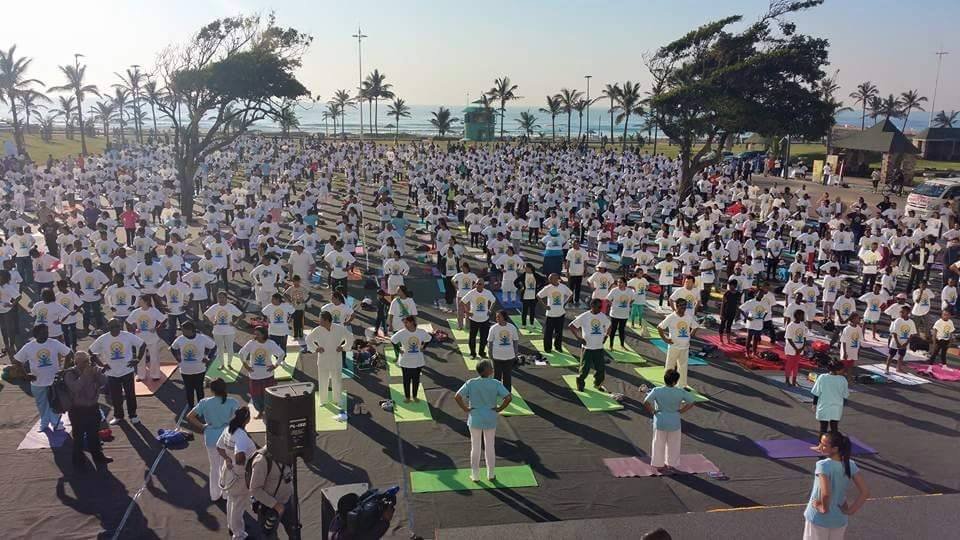1st INTERNATIONAL YOGA DAY 2015- DURBAN AMPHITHEATRE

BEFORE THE PRACTICE:
❑Sauca means cleanliness – an important pre-requisite for yogic practice. It includes cleanliness of the surroundings, body and mind.
❑Yogic practice should be performed in a calm and quiet atmosphere with a relaxed body and mind.
❑Yogic practice should be done on an empty, or light, stomach.

Should you feel weak, consume a small amount of honey in lukewarm water.
❑ The bladder and bowels should be empty before starting yogic practices.
❑A mattress, yoga mat or folded blanket should be used for the practice.
❑Light and comfortable cotton clothes are preferred to facilitate easy movement of the body.
❑Yoga should not be performed in state of exhaustion, illness in a hurry or in acute stress conditions.
❑ In case of chronic disease, pain, cardiac problems, a physician or a yoga therapist should be consulted prior to performing yogic practices.
❑Yoga experts should be consulted before doing yogic practices during pregnancy.

DURING THE PRACTICE
❑Practice sessions should start with a prayer or invocation as it creates a conducive environment to relax the mind.
❑Yogic practices shall be performed slowly, in a relaxed manner, with awareness of the body and breath.
❑ Do not hold the breath unless it is specially mentioned to do so during the practice.
❑ Breathing should be always through the nostrils unless instructed otherwise.
❑ Do not hold body tightly, or jerk the body at any point of time.
❑Perform the practices according to your own capacity.
❑ It takes some time to get good results, so persistent and regular practice is very essential.

❑ There are contra-indications/-limitations for each yoga practice and such contra-indications should always be kept in mind.
❑Yoga session should end with meditation, deep silence. AFTER PRACTICE
❑Bath may be taken only after 20-30 minutes of practice.
❑ Food may be consumed only after 20-30 minutes of practice. FOOD FOR THOUGHT A few dietary guidelines can ensure that the body and mind are flexible and well prepared for practice. A vegetarian diet is usually recommended, and for a person over the age of 30, two meals a day should suffice, except in the case of illness or very high physical activity or labour.

HOW YOGA CAN HELP Yoga is essentially a path to liberation from all bondage.However, medical research in recent years has uncovered many physical and mental benefits that Yoga offers, corroborating the experiences of millions of practitioners.A small sampling of research shows that: ❑ Yoga is beneficial for physical fitness, musculoskeletal functioning and cardio-vascular health. ❑ It is beneficial in the management of diabetes, respiratory disorders, hypertension, hypotension and many lifestyle-elateddisorders.
❑Yoga helps to reduce depression, fatigue, anxiety disorders and stress.
❑Yoga regulates menopausal symptoms.
❑In essence, Yoga is a process of creating a body and mind that are stepping-stones, not hurdles, to an exuberant and fulfilling life